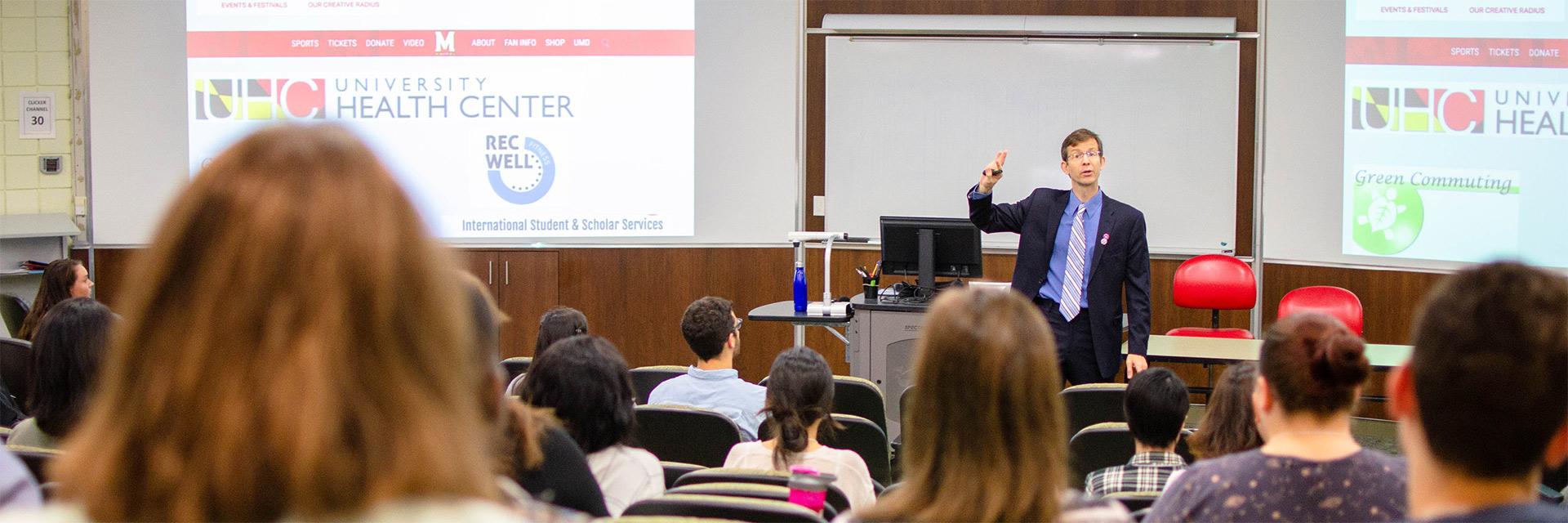Council on Education for Public Health (CEPH) Accreditation
In 2023, the University of Maryland School of Public Health successfully completed the reaccreditation process and is CEPH-accredited through 2030.
Accreditation is an important process of peer review to assess and verify the quality of institutions, programs and services, and to ensure continuous improvement. Schools and programs in public health are reviewed and accredited by the Council on Education for Public Health (CEPH), the independent accrediting agency recognized by the U.S. Department of Education to ensure the quality of education and training in public health. The University of Maryland School of Public Health was first accredited by CEPH in 2010.
Overview of the 2023 Accreditation Process
The school conducts and produces a self-study that comprehensively describes and evaluates the school’s organization, governance, resources, faculty, students, curriculum, research, and services within the context of specific criteria set forth by CEPH. An external peer review committee evaluates the resulting self-study, then visits the school and meets with a variety of stakeholders including faculty, students, staff, alumni, and external community representatives. This committee makes a recommendation to the CEPH Board on whether the school should continue to be accredited; the CEPH Board subsequently makes the ultimate decision.
CEPH accreditation serves multiple purposes for different constituents. In general, specialized accreditation attests to the quality of an educational program that prepares for entry into a recognized profession.
- For the public, accreditation promotes the health, safety and welfare of society by assuring competent public health professionals.
- For prospective students and their parents, accreditation serves a consumer protection purpose. It provides assurance that the school or program has been evaluated and has met accepted standards established by and with the profession.
- For prospective employers, it provides assurance that the curriculum covers essential skills and knowledge needed for today’s jobs.
- For graduates, it promotes professional mobility and enhances employment opportunities in positions that base eligibility upon graduation from an accredited school or program.
- For public health workers, it involves practitioners in the establishment of standards and assures that educational requirements reflect the current training needs of the profession.
- For the profession, it advances the field by promoting standards of practice and advocating rigorous preparation.
- For the federal government and other public funding agencies, it serves as a basis for determining eligibility for federally funded programs and student financial aid.
- For foundations and other private funding sources, it represents a highly desirable indicator of a program’s quality and viability.
- For the university, it provides a reliable basis for inter- and intra-institutional cooperative practices, including admissions and transfer of credit.
- For the faculty and administrators, it promotes ongoing self-evaluation and continuous improvement and provides an effective system for accountability.
- For the school or program, accreditation enhances its national reputation and represents peer recognition.
